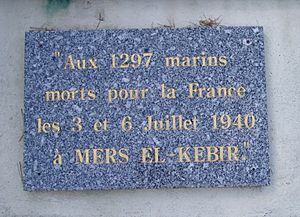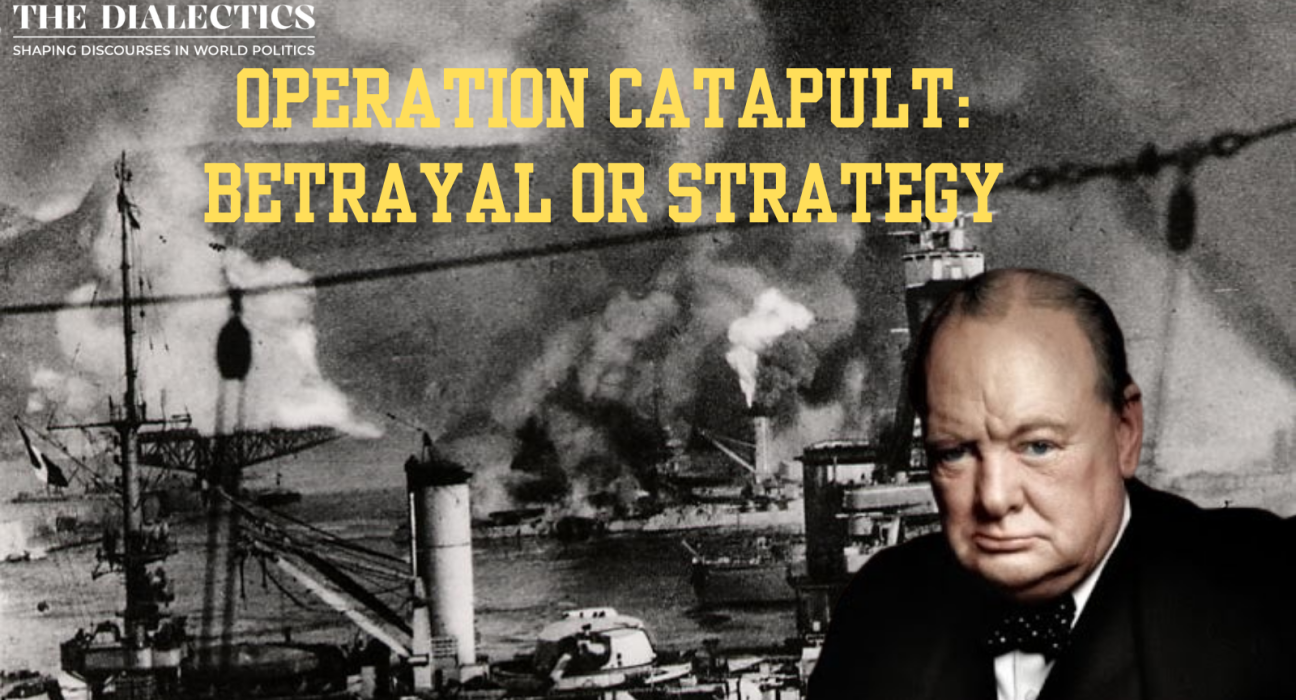This article tells the story of World War II, a global conflict that shook nations to their core. The year was 1940, and France, one of Britain’s closest allies, had just fallen to Nazi Germany. The rapid defeat of France left Britain alone in a desperate fight against Hitler’s forces. But lurking beneath this harsh reality was a dangerous fear: what if the powerful French fleet, a key naval force, fell into German hands?
This fear led to a dramatic and painful decision, one that would turn allies into enemies. Here is the story of how Britain attacked the French fleet at Mers-el-Kébir in Algeria, sinking ships and killing nearly 1,300 French sailors, all in the name of preventing a greater disaster and the strategic interests of the war.
A Fleet Too Powerful to Risk
France’s navy was one of the strongest in the world at the time, second only to Britain’s Royal Navy in Europe. After France signed an armistice with Germany on June 22, 1940, officially ending active fighting, Britain feared that the French navy, including several powerful battleships, might be seized and used by the Nazis against the United Kingdom. And if this happens, Britain has to face its blunt repercussions.
British Prime Minister Winston Churchill and his War Cabinet faced a real dilemma- how to deal with this fleet. French Admiral François Darlan had assured Britain the fleet would stay under French control, but Churchill judged the risk was too great. If those ships joined Germany or Italy, the balance of power at sea could shift disastrously. Hence, created a strategic dilemma in the minds of the British.
Operation Catapult
The plan to prevent this was called Operation Catapult. It was a bold and ruthless move. Britain decided it must neutralise the French fleet, either by taking control of it or by destroying it, before it could be turned against them.
On July 3, 1940, the British naval force called Force H, led by Admiral James Somerville aboard the battlecruiser HMS Hood, arrived at the French naval base of Mers-el-Kébir near Oran, Algeria.
The British sent an ultimatum to the French commander, Admiral Marcel-Bruno Gensoul, with several harsh choices:
● Join the British and sail the fleet to a British port,
● Sail to a French colony like the West Indies to demilitarise the ships, or
● Scuttle (sink) their own ships.
If none of these were accepted, the British warned they would be forced to attack.
The Tragic Clash
Admiral Gensoul refused to accept these terms, believing they violated the French armistice agreement and the honour of the French Navy. Negotiations deteriorated, and at 5:45 PM, the British opened fire.
The strike was devastating. The battleship Bretagne was sunk, five other ships were damaged, and 1,297 French sailors lost their lives. The British paid a price too, losing five aircraft and some crewmen, but their mission was brutally clear.

Why Such a Tragic Step?
For Britain, it was a heartbreaking but strategic necessity. To Churchill and his War Cabinet, this was about survival. They believed that allowing the French fleet to fall into Axis hands could have changed the fate of the war. In practical terms, it was a strategic step taken by the British War Cabinet, but in moral terms, it was a betrayal to its ally.
The attack was painful, rupturing the bond between the two allies and casting a long shadow of resentment in France, but Britain’s resolve was driven by cold wartime calculations.
The Aftermath
Operation Catapult was not limited to Mers-el-Kébir. On the same day, British forces seized French ships in British ports without bloodshed, and other French fleets in places like Alexandria were peacefully neutralised.
The attack at Mers-el-Kébir remained controversial, seen by some as a necessary evil, and by others as a betrayal. It serves as a reminder of the complex and harsh decisions wartime leaders must make, where loyalty, trust, and survival collide. This incident highlights a key challenge in war and diplomacy. Sometimes, desperate moves push allies into an unavoidable conflict. Britain’s choice was not about hatred but fear -fear of losing control of the seas and being overpowered by Axis powers. The story of Mers-el-Kébir remains a powerful lesson in the costs of war and the painful sacrifices made, even among friends.
In the end, the battle wasn’t just about ships or soldiers- it was about the fierce will to survive in a world turned upside down, where yesterday’s friends could become today’s foes, all for the sake of survival and national Interests. This episode of WWII history shows how complex and tragic wartime decisions shape the path of nations, reminding us that sometimes, war forces impossible choices and heavy consequences. If you ever think about World War II, remember Mers-el-Kébir- the day allies clashed in a fight for survival.




